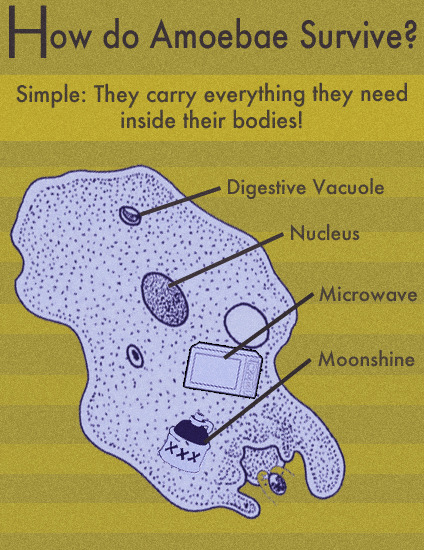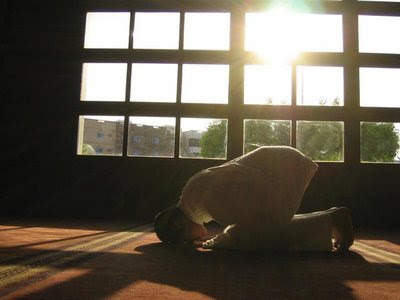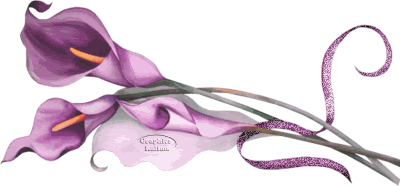AL-FATIHAH
*************************
 *************************
*************************
Fakescience: Do U Know..??







Thursday, May 27, 2010 | 2 Comments
KHABBAB BIN AL-ARATT

On the way home, Umm Anmaar turned to the boy and said:
"What's your name, boy?''
"Khabbah."
"And what's your father's name'?''
"Al-Aratt. "
"Where do you come from?"
"From Najd."
"Then you are an Arab!"
"Yes, from the Banu Tamim."
"How then did you come into the hands of the slave dealers in Makkah?"
"One of the Arab tribes raided our territory. They took our cattle and captured women and children. I was among the youths captured. I passed from one hand to another until I ended up in Makkah . . ."
Umm Anmaar placed the youth as an apprentice to one of the blacksmiths in Makkah to learn the art of making swords. The youth learnt quickly and was soon an expert at the profession. When he was strong enough, Umm Anmaar set up a workshop for him with all the necessary tools and equipment from making swords. Before long he was quite famous in Makkah for his excellent craftsmanship. People also liked dealing with him because of his honesty and integrity. Umm Anmaar gained much profit through him and exploited his talents to the full.
In spite of his youthfulness, Khabbab displayed unique intelligence and wisdom. Often, when he had finished work and was left to himself, he would reflect deeply on the state of Arabian society which was so steeped in corruption. He was appalled at the aimless wandering, the ignorance and the tyranny which he saw. He was one of the victims of this tyranny and he would say to himself:
"After this night of darkness, there must be a dawn." And he hoped that he would live long enough to see the darkness dissipate with the steady glow and brightness of new light.
Khabbab did not have to wait long. He was privileged to be in Makkah when the first rays of the light of Islam penetrated the city. It emanated from the lips of Muhammad ibn Abdullah as he announced that none deserves to be worshipped or adored except the Creator and Sustainer of the universe. He called for an end to injustice and oppression and sharply criticized the practices of the rich in accumulating wealth at the expense of the poor and the outcast. He denounced aristocratic privileges and attitudes and called for a new order based on respect for human dignity and compassion for the underprivileged including orphans, wayfarers and the needy.
To Khabbab, the teachings of Muhammad were like a powerful light dispelling the darkness of ignorance. He went and listened to these teachings directly from him. Without any hesitation he stretched out his hand to the Prophet in allegiance and testified that "There is no god but Allah and Muhammad is His servant and His messenger." He was among the first ten persons to accept Islam .
Khabbab did not hide his acceptance of Islam from anyone. When the news of his becoming a Muslim reached Umm Anmaar, she became incensed with anger. She went to her brother Sibaa ibn Abd al-Uzza who gathered a gang of youths from the Khuzaa tribe and together they made their way to Khabbab. They found him completely engrossed in his work. Sibaa went up to him and said:
"We have heard some news from you which we don't believe."
"What is it?" asked Khabbab.
"We have been told that you have given up your religion and that you now follow that man from the Banu Ha shim ."
"I have not given up my religion" replied Khabbab calmly. "I only believe in One God Who has no partner. I reject your idols and I believe that Muhammad is the servant of God and His messenger."
No sooner had Khabbab spoken these words than Sibaa and his gang set upon him. They beat him with their fists and with iron bars and they kicked him until he fell unconscious to the ground, with blood streaming from the wounds he received.
The news of what happened between Khabbab and his slave mistress spread throughout Makkah like wild-fire. People were astonished at Khabbab's daring. They had not yet heard of anyone who followed Muhammad and who had the audacity to announce the fact with such frankness and deviant confidence.
The Khabbab affair shook the leaders of the Quraysh. They did not expect that a blacksmith, such as belonged to Umm Anmaar and who had no clan in Makkah to protect him and no asabiyyah to prevent him from injury, would be bold enough to go outside her authority, denounce her gods and reject the religion of her forefathers. They realized that this was only the beginning . . .
The Quraysh were not wrong in their expectations. Khabbab's courage impressed many of his friends and encouraged them to announce their acceptance of Islam. One after another, they began to proclaim publicly the message of truth.
In the precincts of the Haram, near the Kabah, the Quraysh leaders gathered to discuss the problem of Muhammad. Among them were Abu Sufyan ibn Harb, al Walid ibn al-Mughira and Abu Jahl ibn Hisham. They noted that Muhammad was getting stronger and that his following was increasing day by day, indeed hour by hour. To them this was like a terrible disease and they made up their minds to stop it before it got out of control. They decided that each tribe should get hold of any follower of Muhammad among them and punish him until he either recants his faith or dies.
On Sibaa ibn Abd al-Uzza and his people fell the task of punishing Khabbab even further. Regularly they began taking him to all open area in the city when the sun was at its zenith and the ground was scorching hot. They would take off his clothes and dress him in iron armor and lay him on the ground. In the intense heat his skin would be seared and hit body would become inert. When it appeared that all strength had let him, they would come up and challenge him:
"What do you say about Muhammad'?"
"He is the servant of God and His messenger. He has come with the religion of guidance and truth, to lead us from darkness into light."
They would become more furious and intensify their beating. They would ask about al-Laat and al-Uzza and he would reply firmly:
"Two idols, deaf and dumb, that cannot cause harm or bring any benefit..."
This enraged them even more and they would take a big hot stone and place it on his back. Khabbab's pain and anguish would be excruciating but he did not recant.
The inhumanity of Umm Anmaar towards Khabbab was not less than that of her brother. Once she saw the Prophet speaking to Khabbab at his workshop and she flew into a blind rage. Every day after that, for several days, she went to Khabbab's workshop and punished him by placing a red hot iron from the furnace on his head. The agony was unbearable and he often fainted.
Khabbab suffered long and his only recourse was to prayer. He prayed for the punishment of Umm Anmaar and her brother. His release from pain and suffering only came when the Prophet, peace be upon him, gave permission to his companions to emigrate to Madinah. Umm Anmaar by then could not prevent him from going. She herself became afflicted with a terrible illness which no one had heard of before. She behaved as if she had suffered a rabid attack. The headaches she had were especially nerve-racking. Her children sought everywhere for medical help until finally they were told that the only cure was to cauterize her head. This was done. The treatment, with a ret hot iron, was more terrible than all the headaches she suffered.
At Madinah, among the generous and hospitable Ansar, Khabbab experienced a state of ease and restfulness which he had not known for a long time. He was delighted to be near the Prophet, peace be upon him, with no one to molest him or disturb his happiness.
He fought alongside the noble Prophet at the battle of Badr. He participated in the battle of Uhud where he had the satisfaction of seeing Sibaa ibn Abd al-Uzza meet his end at the hands of Hamza ibn Abd al-Muttalib, the uncle of the Prophet.
Khabbab lived long enough to witness the great expansion of Islam under the four Khulafaa arRashidun -Abu Bakr, Umar, Uthman and Ali. He once visited Umar during his caliphate. Umar stood up--he was in a meeting--and greeted Khabbab with the words:
"No one is more deserving than you to be in this assembly other than Bilal." He asked Khabbab about the torture and the persecution he had received at the hands of the mushrikeen. Khabbab described this in some detail since it was still very vivid in his mind. He then exposed his back and even Umar was aghast at what he saw.
In the last phase of his life, Khabbab was blessed with wealth such as he had never before dreamed of. He was, however, well-known for his generosity. It is even said that he placed his dirhams and his diners in a part of his house that was known to the poor and the needy. He did not secure this money in any way and those in need would come and take what they needed without seeking any permission or asking any questions.
In spite of this, he was always afraid of his accountability to God for the way he disposed of this wealth. A group of companions related that they visited Khabbab when he was sick and he said:
"In this place there are eighty thousand dirhams. By God, I have never secured it any way and I have not barred anyone in need from it."
He wept and they asked why he was weeping.
"I weep," he said, "because my companions have passed away and they did not obtain any such reward in this world. I have lived on and have acquired this wealth and I fear that this will be the only reward for my deeds."
Soon after he passed away. The Khalifah Ali ibn Abu Talib, may God be pleased with him, stood at his grave and said:
"May God have mercy on Khabbab. He accepted Islam wholeheartedly. He performed hijrah willingly. He lived as a mujahid and God shall not withhold the reward of one who has done good."
Monday, May 24, 2010 | 0 Comments
Eye Disease: Cataract

![]()
![]()
![]()
What is a cataract? 

Who gets cataracts?
Most people who develop cataracts are older than age 60. The
cataract forms as part of the normal aging process. Two conditions
which may cause the development of cataract earlier than age 60
are diabetes and injury to the eye. Certain medications such as
steroids may also cause cataract formation.
How do I know if I have a cataract?
People who have cataracts often notice a decrease in their vision.
For example, they may have difficulty reading or driving. Another
common problem is glare. Because of glare, people with cataracts
may find it harder to see when there are bright lights on, such as
when looking at the oncoming headlights of a car. An eye physician
can tell if you have a cataract by examining your eyes.
How are cataracts treated?
People often think that cataracts can be removed with a laser.
This is not true. Cataracts cannot be removed with a laser. In
addition,there is no medicine one can take to treat a cataract.
Cataract can be removed through a surgery. It is an outpatient
surgery that can be done at a hospital OR in an ambulatory
surgery centre. Cataracts are treated by microscopic surgery.
In cataract micro-surgery, mild sedation is given and the eye is
numbed, either with eye drops alone or with an injection around
the eye. Then a tiny incision of a few milimetres is made in the
cornea and an ultrasonic probe is inserted into the eye,broken up
the cataract by its wave and the cloudy lens is removed through
the probe. This is called phaco-emulsification. A clear, plastic lens
is then put in the eye to REPLACE the cloudy lens. Following
cataract surgery, most people will experience substantial
improvement in their vision.
Who performs cataract surgery?
Eye physicians and surgeons (ophthalmologists) are medical
doctors, M.D.'s, who have undergone specialized training in
ORDER to be able perform cataract surgery. They are experienced
in all aspects of cataract surgery including the latest micro-surgical
techniques.


Microscopic Surgery-Phaco Emulsification
![]()
![]()
![]()
What are the risks associated with cataract surgery?
Cataract surgery is the most commonly performed type of eye
surgery. In the vast majority of cases, approximately 95% of
the time, the surgery is uncomplicated. Cataract surgery usually
results in improved vision and a well satisfied patient. However,
cataract surgery should never be trivialized. In a small percentage
of patients, events occur which can lead to less than ideal results.
Most of these events are known risks of the surgery itself and can
occur even if the operation is performed well by an experienced
surgeon. The occurrence of these events is often unpredictable.
Patients should be aware of such possibilities when they decide
to proceed with surgery. Some of the most common risks are
reviewed in this article.
Endophthalmitis
Ophthalmic surgeons normally make great efforts at the time
of surgeryto reduce the possibility of introacular infection,
which is called "endophthalmitis". Patients usually receive topical
antibiotic eye drops n the day of surgery. The surface of the eye
and the skin around the eye are disinfected with antiseptic
compounds, the patient's face except the eye is covered with
sterile drapes. Sterile techniques are used for all instruments,
similar to those used for all modern surgeries. After the surgery
is completed, surgeons prescribe topical antibiotic eye drops.
Nonetheless, even with these precautions, endophthalmitis still
occurs in approximately one out of 3,000 cases. Symptoms
and signs of endophthalmitis include excessive eye redness,
pain, light sensitivity, and worsening vision.
In some cases, the patients may be fairly comfortable on the first
day or so after urgery, but then worsen in terms of pain, vision,
and light sensitivity several days later. Patients who undergo
cataract surgery should be instructed to call their ophthalmologist
immediately if they worsen in these ways. If a patient develops
endophthalmitis, intraocular antibiotics are often injected INTO
the eye to minimize the spread of the infection. Sometimes an
additional surgery (vitrectomy) is performed to remove the
jelly-like substance of the eye; this may help control the infection.
Cystoid Macular Edema
The retina is the neural tissue which lines the entire inside of
the back part the eye. The very center of the retina is called
the macula, which is responsible for central vision. After cataract
surgery, inflammation can sometimes cause retinal blood vessels
to leak fluid which accumulates in the macula, causing decreased
central vision. This swelling is referred to as "cystoid macular edema".
When vision is affected by macular edema, the ophthalmologist may
recommend a specialized test, called a fluorescein angiogram, in ORDER
to determine the extent of swelling. Ophthalmologists often treat
macular edema with topical steroid eye drops or non-steroidal
anti-inflammatory eye drops which help quiet the inflammation, often
improving the situation over weeks or months. Sometimes injections
of steroids behind the eye, or even intra-ocular vitrectomy surgery
are useful in improving the vision.
Retinal Detachment
A retinal detachment occurs when liquid vitreous fluid gets through
a fine tear in the retina, allowing it to separate abnormally FROM
the back wall of the eye. A retinal detachment may cause a curtain
across part or all of the vision of the eye. Retinal detachments can
occur in patients who have not had any prior eye surgery, especially
in patients who are highly nearsighted. However, cataract surgery
increases the risk of retinal detachment. After cataract surgery,
retinal detachments occur in approximately 1.5% of patients. You
should contact your ophthalmologist immediately if you develop a
curtain blocking the vision, flashes of light like lightening streaks, or
new floating spots in your vision. These symptoms can sometimes
herald a retinal detachment.
Posteriorly Dislocated Lens Material
In some instances, lens material can fall INTO the back cavity
(vitreous cavity) of the eye. Often small pieces of posteriorly
dislocated lens material are well tolerated by the eye without problems.
When larger pieces are dislocated, the ophthalmologist may recommend
a second surgery, called a vitrectomy, to remove the lens material. This
emoval prevents excessive inflammation FROM developing.
Choroidal Hemorrhage
Infrequently and unpredictably during cataract surgery, acute bleeding
can occur in the choroid, which is the delicate pattern of blood vessels
underlying and nourishing the retina. Although this complication, called
"choroidal hemorrhage" is more common among elderly patients, it is
truly unpredictable. In some cases of choroidal hemorrhage, the bleeding
is localized, and patients do well. In more severe cases of choroidal
hemorrhage, visual loss can be substantial.
Information about the risks associated with cataract surgery
Before cataract surgery, ophthalmologists usually discuss the risks,
benefits and alternatives of the surgery. If unexpected events occur
at the time of surgery, or develop after the surgery, the ophthalmologic
surgeon will discuss the particular implications and help formulate a
specific treatment plan.
Source:
1-Cataracts- Yichieh Shiuey, MD; Peter K. Kaiser, MD
Massachusetts Eye and Ear Infirmary, Harvard Medical School
2-Cataract Surgery- Vincent J. Patalano II, MD
Massachusetts Eye and Ear Infirmary, Massachusetts Eye and Ear
Somerville Eye Center
Saturday, May 22, 2010 | 1 Comments
Solat Istikharah: Cara Dan Petunjuknya

 n kesudahan urusanku (kini dan akan datang), maka hindarkanlah ia daripadaku dan hindarkanlah aku daripadanya. Tetapkanlah bagiku kebaikan dan jadikan aku redha dengannya".
n kesudahan urusanku (kini dan akan datang), maka hindarkanlah ia daripadaku dan hindarkanlah aku daripadanya. Tetapkanlah bagiku kebaikan dan jadikan aku redha dengannya".![]()
Setelah beristikharah, namun hati masih dalam ketidak pastian, harus baginya untuk mengulangi solat dan doa Istikharah itu sehingga beroleh ketetapan hati dalam membuat keputusan. Jangan pula kita hanya berharap pada petunjuk melalui mimpi yang kadang-kadang berjaya ditebusi oleh helah syaitan akibat kurangnya keimanan diri dan kecelaruan akal. Oleh itu, dianjurkan juga beristisyarah, yakni meminta pendapat individu-individu yang dipercayai integriti dan kemahirannya dalam urusan tersebut, agar keputusan boleh dibuat.
Apa yang penting sebagai manusia kita harus menggunakan akal dan pertimbangan yang bijak dalam membuat pilihan. Istikharah pula membantu kita untuk mendapat petunjuk/keberkatan dari Allah mengenai ketepatan pilihan kita itu dengan syarat kita TIDAKdipengaruhi oleh kemahuan dari godaan syaitan dan nafsu sewaktu mengadakan Istikharah.. Jiwa yang tidak pasrah meminta kepada Allah, sebaliknya sering mengharapkan('memaksa') Allah menyokong kemahuan dirinya sendiri.
Beristikharah bertujuan memohon pertolongan Allah dalam keputusan yang kita buat. Kita yang membuat keputusan itu, dengan keyakinan hasil Istikharah. Jika di kemudian hari, pada pilihan yang dibuat itu, datang fitnah yang menguji kehidupan, kita tidak akan berfikiran negatifmalah berusaha untuk mencari sisi-sisi positif pada apa yang berlaku kerana keputusan yang dibuat dahulu itu adalah dengan kelengkapan Syariatullah (Istikharah) serta Sunnatullah (Istisyarah – Ikhtiar Usaha).
Jangan tersalah langkah dan lalai dalam mencari petunjuk Allah. Dikhuatiri pilihan yang disangkakan petunjuk daripada Allah itu mencetuskan mudarat, permusuhan, meninggalkan yang afdhal dan mengambil yang mafdhul… berhati-hatilah dengan mainan syaitan.

Imam Nawawi mengatakan: “Disunatkan pada rakaat pertama setelah al-Fatihah membaca surat al-Kafirun dan rakaat ke dua membaca surat al-Ikhlas”.
Sedangkan al-Hafiz al-’Iraqi mengatakan “Aku tidak menjumpai satu hadis pun tentang penentuan bacaan surah-surah khusus dalam solat Istikharah.”
Dan keterangan di atas jelas bahawa pendapat yang lebih kuat adalah tidak adanya ketentuan surah-surah yang dibaca ketika solat Istikharah, lantaran tidak ada keterangan dari Rasulullah akan hal itu, dan mereka yang mensunatkan surah-surah tertentu tanpa berdasarkan dalil dari al-Qur’an dan Sunnah, sehingga kita katakan disunnahkan setelah membaca al-Fatihah di masing-masing rakaat untuk membaca surah apa saja dari al-Qur’an yang telah dihafal.
Berkata Ibnu Bazz (Majmu’ Fatawa wa Maqolat Mutanawzvi’ah 11/421): “Hendaknya (orang yang solat Istikharah) membaca al-Fatihah di setiap rakaat dan membaca surah apa saja yang mudah.”
Bilakah Doa Istikharah Dibacakan?
Doa Istikharah boleh dibaca samaada sebelum salam atau selepas salam sebaik selesai solat dua rakaat. (Sebagaimana fatwa Syaikhul Islam Ibnu Taimiyah dalam Majmu’ Fatwanya 12/105)
i. Sebelum salam
Adapun dibolehkan membaca doa istikharah sebelum salam ini berdasarkan:
1. Kebanyakan doa Rasulullah dalam solat dilakukan sebelum salam (setelah tasyahud akhir).
Abu Hurairah r.a meriwayatkan, Rasulullah s.a.w. bersabda; "Apabila kalian selesai dari tasyahud yang terakhir, hendaklah berdoa meminta perlindungan (berdoa) kepada Allah dari empat perkara; Ya Allah, aku berlindung kepada-Mu dari azab neraka Jahannam; dan azab kubur, dari fitnah kehidupan dan kematian; dan dari fitnah al-Masih ad-Dajjal. Hadis Riwayat Bukhari dan Muslim.
2. Dalam Hadis Jabir bin Abdullah, Rasulullah tidak menentukan masa pembacaan doa istikharah samada harus sebelum salam atau sesudah salam.
b. Sesudah salam
Doa Istikharah boleh juga dibaca sesudah salam berdasarkan hadis yang mebolehkan doa tersebut dibaca sesudah salam, sebagaimana Rasulullah s.a.w. bersabda (yang ertinya): “Apabila di antara kalian berkeinginan/bermaksud terhadap suatu perkara, hendaklah solat sunat dua rakaat, kemudian berdoa...”
Sabda Rasulullah s.a.w lagi: “Solat Istikharah hukumnya sunat, dan do’a istikharah tempatnya setelah salam" Hadis riwayat Ibnu Baz: Majmu’ (Fatawa wa Maqolat Mutanawwi’ah 11/421422).
Apa Yang Dilakukan Setelah Solat Istikharah Dan Isytiharah?
Imam Nawawi r.a. berpendapat: “Setelah seseorang melakukan solat Istikharah, sebaiknya diabertindak mengikut gerak hati dan kelapangan dadanya terhadap perkara tersebutsamada baik untuk meneruskan maksudnya ataupun meninggalkannya.
“Sebelum beristikharah hendaklah seseorang itu menghilangkan kecenderungan hatinya terhadap suatu perkara, dan tidak selayaknya bersandar kepada adanya kecenderungan hati sebelum istikharah, kerana apabila sudah ada kecenderungan hati sebelum istikharah, lalu dia melakukan istikharah, bererti dia tidak beristikharah, kerana istikharah dilakukan ketika bimbang dan meminta dipilihkan yang terbaik oleh Allah untuknya.” (Perkataan Imam Nawawi ini dinukil oleh Imam Syaukani dalam Nailul Author 2/298)
Apakah Petunjuknya?
Sebahagian orang berkata: “Setelah melakukan solat dan doa Istikharah, maka akan datang petunjuk dalam mimpinya, maka buatlah pilihan sebagaimana mimpinya,” oleh kerana itu ada sebagian orang berwudhu’, lalu melakukan solat dan doa istikharah, kemudian terus tidur(mengharap petunjuk datang melalui mimpi), bahkan sebahagian mereka menyengaja memakai pakaian berwarna putih (supaya bermimpi baik), semua ini hanyalah prasangkamanusia (yang tidak ada asasya). Jangan sesekali kita melakukan sesuatu perkara yang berkaitan hal agama hanya berdasarkan hearsay kerana ia terselit permainan syaitan yang menyesatkan.
Kesimpulan
1. Rasa bimbang, ragu, dan ketidak-tahuan baik dan buruknya suatu perkara adalah hal yang wajar, kerana semua itu termasuk tabiat dan keterbatasan manusia. Namun berusahalah supaya diri tidak sentiasa keliru atau was-was kerana ia merupakan permainan syaitan dalam percubaan menyesatkan manusia.
2. Solat Istikharah adalah solat sunat yang dilakukan untuk minta petunjuk dan keberkatan daripada Allah supaya terhindar dari kekeliruan dalam menghadapi sesuatu permasalahan.
3. Para ulama bersepakat (ijma’) bahawa solat Istikharah hukumnya sunat.
4. Solat Istikharah disunatkan bagi segenap perkara baik besar atau kecil, selama seseorang bimbang atau ragu ataupun tidak mengetahui maslahatnya di masa akan datang.
5. Apabila terdapat kecondongan hati atau mengetahui kebaikan sesuatu perkara (dari awal lagi), maka tidak disunatkan beristikharah; kerana solat Istikharah itu dilakukan adalah bagi tujuan meminta petunjuk, dan Allah memerintahkan hambaNya yang telah beristikharah supaya bertawakal kepada Allah.
6. Istikharah disunatkan dalam perkara-perkara yang asalnya mubah. Perkara wajib dan sunat, tidak memerlukan istikharah, ini kerana kebaikannya sudah jelas, sebagaimana perkara haram dan makruh tidak disunatkan istikharah kerana keburukannya dan hukumnya sudah jelas.
7. Tidak terdapat dalil yang sah tentang pengkhususan bacaan surah-surah al-Qur’an dalam setiap rakaat solat Istikharah.
8. Doa Istikharah boleh dibaca dalam solat (sebelum salam) atau di luar solat (sesudah salam)
9. Dibolehkan mengulangi solat Istikharah dalam satu perkara apabila diperlukan, sehingga hati mendapat keyakinan dalam membuat sesuatu keputusan.
10. Ketenangan hati dan kelapangan dada terhadap suatu perkara setelah melakukan solat istikharah adalah tanda petunjuk dari Allah, DAN tidak terdapat dalil yang sah tentang keharusan melihat mimpi setelah beristikharah.
Demikian serba sedikit mengenai solat Istikharah, mudah-mudahan kita mendapat petunjuk Allah ewaktu menghadapi masalah dalam membuat pilihan / keputusan yang tepat, bersesuaian dengan apa yang digariskan oleh Allah dan Rasul-Nya serta mendapat yang terbaik di sisiNya dengan cara taat dan beristiqomah kepadaNya.

Tuesday, May 18, 2010 | 6 Comments
Komen Tentang Blog Ini:




 Warm up lah dulu...
Warm up lah dulu...
 Yeaah...Gerak kiri/kanan cam nak bersilat...
Yeaah...Gerak kiri/kanan cam nak bersilat...
 Pusing bahu n Lenggang kiri/kanan...
Pusing bahu n Lenggang kiri/kanan... Bongkok n Pusing kepala..!
Bongkok n Pusing kepala..!

 Lor... Ko amik gambo ker..?
Lor... Ko amik gambo ker..? Adehh... Sakit pinggang la plak..!
Adehh... Sakit pinggang la plak..! Hahaha.... Pasal tak leh stop ni...?
Hahaha.... Pasal tak leh stop ni...? *The tale 0f you and I*
you gave walking sticks to others
yet you yourself were limping
you offered a lending hand
but it was you who needed help
you wore shields and armours
but it wasnt the outside that needed protection
you claimed others as foes and threats
yet you stabbed your very own heart
you blamed the time for being envious
was it not you who made the clock?
you walked the road with glitters and jewels
but back in home you slept on dirt
you conquered the lands and the oceans and skies
yet you moaned and screamed in dreams
you were the king of glorious men
but you were held captive of unseen strings
you claimed yourself a proud free man
yet you were chained to your old ventriloquist>
"By the power of Truth...."





















